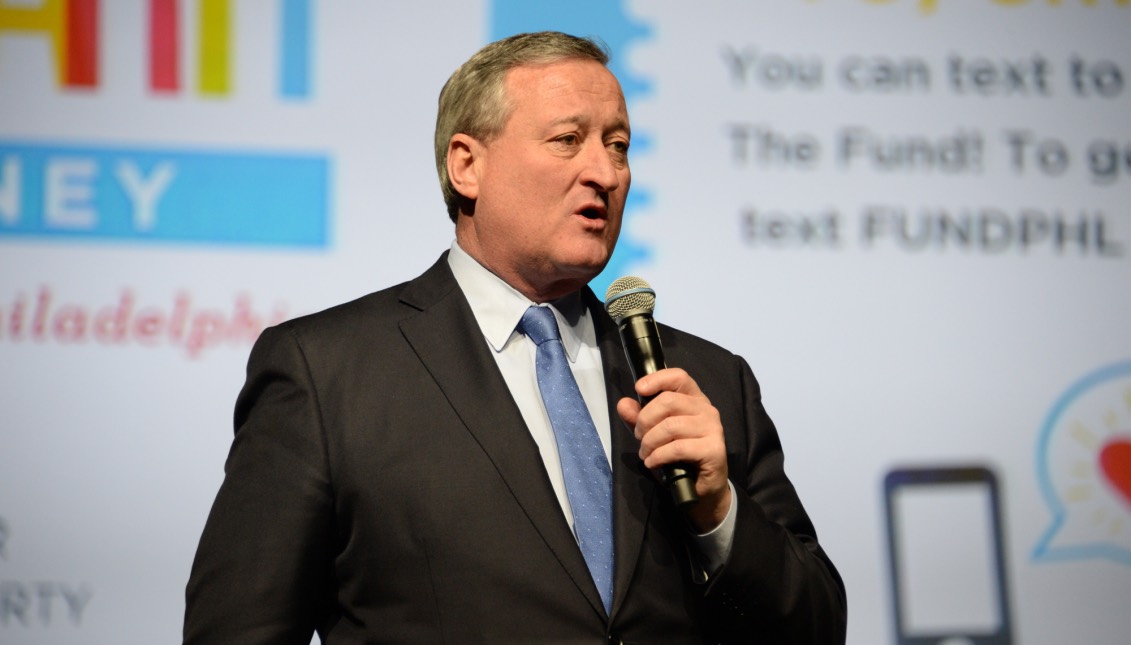
Black lives do matter
MORE IN THIS SECTION
I’m going to go out on a limb here and say that in the first time in its 161-year history, “Black Lives Matter” was heard at the Academy of Music. It was a classic drop-the-mic, record-stop, actually look up from your phone moment but it happened. We all heard it during mayor-elect Jim Kenney’s inauguration speech on Monday. His full words were "Black lives do matter,’’ emphasis his and mine.
Unlike countless other times politicians have pandered to popular sentiment to gain favor with minorities, Kenney’s words were on point, connected and it felt that he had genuine understanding of what it would mean to use those words in that moment. Kenney was quick to point out the need to make the statement and balanced it by acknowledging that the majority of police officers are hard working public servants. Which is true. And that friction does indeed exist in the communities that they serve and how it should be addressed.
For the communities that have been openly wondering what it means to have a white mayor govern a city that predominantly isn’t, I think you have your answer — with inclusion and fairness. For the communities that have openly wondered what could a white mayor do for us that a Black or brown mayor couldn’t — I think the answer is freedom to do the right thing regardless of the politics.
It has been long discussed in political circles the frustration of African American and Latino elected officials that they couldn’t do more for their communities or constituents from an economic opportunity perspective because of the optics. That it would look bad, that it would seem like they were ‘hooking’ up their friends and family. Regardless that it has been done for hundreds of years by their white counterparts. One of the enduring memories from the John Street era was when he publicly declared “The brothers and sisters are running the city.” My God, you would have thought he was trying to revive the Black Panther Party. I’ll admit and Mayor Street probably would too that it was perhaps inartful, but what he meant that is that he as an African American mayor, he had a significant opportunity to address the systemic poverty faced by so many African American residents of the city.
Another fallacy in minority progress is the idea that if your mayor or governor or even president is African American that it truly means that we’re living in a post racial society, opportunities are truly equal to everyone, the playing field is level and that racial inequity is a thing of the past. It is usually boiled down to, “hey you have a Black mayor” or “hey you have a Black president, everything is fair now, what more do you need?” This simply isn’t true. The Black-white income gap hasn’t budged in more than 50 years. The Black-white education gap is as disparate today as it was in 60 years ago. The Black-white incarceration gap is as abysmal as it was since the passage of the Civil Rights Act in 1964. So no, we’re not on a level playing field and we are not living in a post-racial society.
By publicly stating the importance of Black lives, acknowledging the movement, respectful relationships with the police department, the urgency of getting our returning citizens back to work, a living wage and addressing Philadelphia’s abysmal poverty rate, Kenney set the tone that he intends to address the issues that many in the community face daily. You can try to take the color out and look at these as the issues of the economically disadvantaged but they are quite honestly primarily issues faced by people of color. To many hearing these issues being discussed in the most public way possible by the city’s chief executive on his first day on the job was putting a lot on the line. Which is quite fitting because a lot is at stake right now.
Mustafa Rashed is the President & CEO of Bellevue Strategies, a government relations, advocacy and consulting firm.






LEAVE A COMMENT:
Join the discussion! Leave a comment.